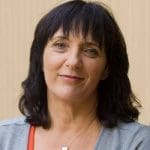Building back better for people with a disability

2 December 2020 at 6:27 pm
This International Day of People with Disability is our chance to learn from what we’ve been hearing in the royal commission and start thinking about how we can create a disability-inclusive Australia post COVID-19, writes Dr Cathy Kezelman AM, president of Blue Knot Foundation.
The Australian Royal Commission into Violence, Abuse, Neglect and Exploitation of People with Disability is examining the harsh realities of current, past and often ongoing traumas experienced by people with disability and their impacts. It is there to listen to and hear the experiences of people with disability, their family, partners, carers, support workers and advocates.
It’s highlighted how, as a nation, we still have a long way to go supporting people living with disability. It’s a necessary first step to understand where we can make changes to help reduce the trauma experiences and “build back better”.
This International Day of People with Disability is our chance to take real action, learn from what we’ve been hearing in the royal commission and start thinking about how we can create a disability-inclusive, accessible and sustainable post-COVID-19 Australia.
It’s one thing to raise awareness, promote acceptance and understanding of people with disability, but another to truly unite and enact inclusivity and universal accessibility into the everyday.
Too many of our fellow Australians have suffered ongoing harm at the hands of others, as well as unacceptable barriers to meaningful participation. And yet, despite revelations of individual and systemic abuses, the level of social discourse spurned by the commission’s proceedings is muted. Of course, this commission was just hitting its stride when it took a backseat to the pandemic. But sadly, it also highlights our community’s failure in supporting people with disability.
Ironically, the pandemic overwhelmed us all, as we faced an invisible and pervasive threat, akin to that of the interpersonal trauma the commission was exploring. The economic and health threats of COVID-19 were compounded by the challenges of social distancing, masks, lockdowns and quarantine. Many people with disability additionally faced withdrawal of their usual supports, including those of advocacy services. For many, the usual supports were always far from adequate.
As the threat and reality of COVID-19 retreats, let us not revert to form. The commission provides us a unique opportunity for real change. It cannot simply become a platform to reiterate platitudes around inclusion, accessibility and human rights. We need to do so much more.
Regardless of the barriers and realities we face as human beings, we all have our individual hopes, desires and needs. We all seek to be understood and understand ourselves.
The National Counselling and Referral Service delivers trauma-informed counselling for people with disability which was previously not on the radar. Reaching out to someone we trust and can feel safe with is important. Some people with disability might seek out a support worker, an advocate, a carer or family member. For others, it is hard to identify who to speak or engage with. Sometimes, a counsellor can fill this much needed gap.
A trauma counsellor can support you to understand your experiences, how they affected you and how you coped. They can also provide you with strategies and tools to help you to feel calmer and more empowered. While counselling can seem daunting, it is a way of connecting with a person who accepts you for who you are and helps you identify what you need in the moment.
Access to counselling, other supports and advocacy provide possibilities for a better world for people with disability – if each person finds a way to feel understood and supported, and each community becomes more inclusive and accepting, we will be on our way for much-needed change. Australia will be able to hold its head high, consider and enact the recommendations of the disability royal commission and when we reach a post-COVID-19 world, be disability-inclusive in a way that is sustainable and accessible for all.







